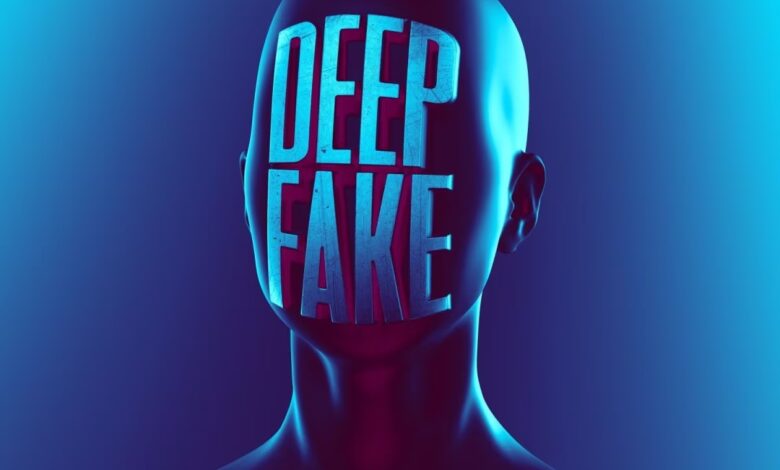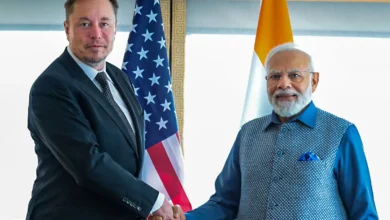UP govt to use online tools and helpline to combat deepfake notoriety
The Uttar Pradesh (UP) cyber police now intend to launch a dedicated hotline to report cases and develop a tool to guarantee detection.

Observing “deepfakes,” an artificial intelligence (AI) driven cybercrime that gained popularity after actors like Katrina Kaif, Rashmika Mandanna, Kajol and Prime Minister Narendra Modi fell victim to it. The Uttar Pradesh (UP) cyber police now intend to launch a dedicated hotline to report cases and develop a tool to guarantee detection.
In an effort to combat cybercrimes, UP Chief Minister Yogi Adityanath has ordered the establishment of 57 new cyber police stations around the state.
“The abuse of technology has transformed the character of crime in recent years. Numerous cybercrimes pertaining to customer service, pensions, power bills, remote employment, sextortion, loan applications, packages, franchisees, fraudulent betting apps, cryptocurrency investment schemes, and other areas have come to light. The average person is directly suffering from this. We need to exercise caution at all levels in order to prevent this,” UP CM was cited in a news statement.
A reliable helpline for deepfake remedial
The Uttar Pradesh government is prepared to introduce a special hotline to address deepfakes. In addition, the UP cyber police are developing tools for spotting deepfakes. “We are already working on the tools that can be used to identify deepfakes. We are also planning to launch a dedicated helpline apart from the regular helpline (1930) to tackle the cases of deepfakes. People can also report the matter on the existing helpline,” the SP cyber police stated.
Between March 2022 and March 2023, 13,155 incidents of cybercrime were reported in Uttar Pradesh. According to cyber police sources, a significant portion fall into the deepfake category.
“Of late, there is a sudden spurt in the cases of cybercrime, involving deep fakes. There is a rise in the trend of AI-based voice cloning, deepfake videos (videos morphed using AI tools) or morphed images,” according to Triveni Singh, superintendent of police (SP), cybercrime, UP Police.
Deepfake decoded
Dr. Rakshit Tandon, a national cyber security expert, defined deepfake as a kind of cybercrime in which a person’s identity is stolen and used to disseminate false information utilising a variety of AI technological tools. It could take the shape of an AI-generated picture, video, or audio file. It involves manipulating the source image or video to create information that, although looking real, isn’t. The word “deepfake” combines the terms “deep” editing knowledge of an AI tool with “fake.”
According to the cyber expert, deepfakes are mostly employed to create audio, video, or picture files in which the victim’s face is cleverly replaced. When it comes to deepfake voice cloning, fraudsters utilise artificial intelligence (AI) to mimic a person’s voice and phone their loved ones to beg for financial assistance.
PM Modi as a victim
Deepfakes swept the nation when PM Modi fell for them.
Prime Minister Narendra Modi voiced his grave worry on November 17, 2023, over the improper usage of AI to produce deepfakes. “I watched a deepfake video in which I am doing garba. But the reality is that I have not done garba after my school life. Someone has made my deepfake video,” at the Bharatiya Janata Party’s Diwali Milan event in Delhi, Prime Minister Modi addressed the media.
According to the Prime Minister, deepfakes may be the “new crisis” since many people lack access to alternative verification methods.
On November 17, Kajol’s deepfake video emerged, in which the actor is seen changing clothes in front of the camera. In Mandanna’s instance, the footage displayed a lady going into a lift while dressed in black. But in a deepfake video, her face replaces the actor’s. In her deepfake, Katrina Kaif’s action sequence from Tiger-3 was altered.
The Ministry of Electronics and IT (MeitY) sent out a warning to social media sites, such as Facebook, Instagram, and YouTube, to remove deceptive information created by artificial intelligence within a day of Mandanna’s deepfake going popular. The guidance restated the current legal requirements that internet intermediaries like platforms must adhere to.
It brought up Section 66D of the Information Technology Act, which stipulates that utilising computer resources to defraud via personation is punishable by up to three years in jail and a fine of up to Rs one lakh.
You might also be intersted in – What is Uttar Pradesh’s Grand Vision for 2036 Olympic Games?



